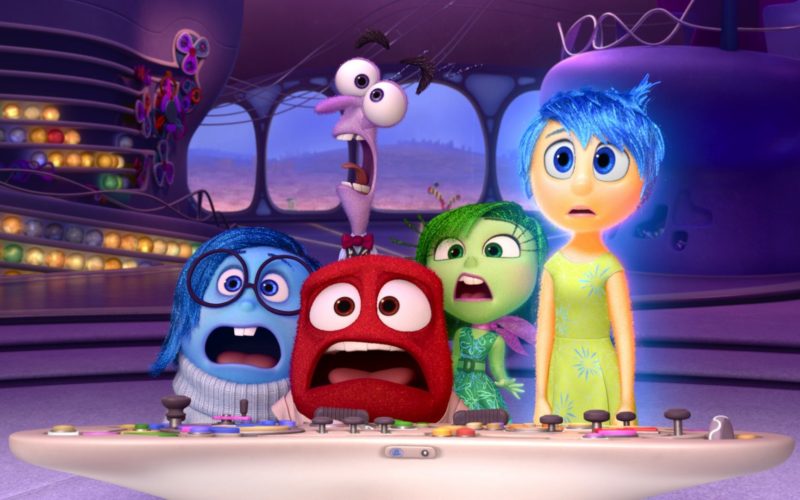With yet another unpublished opinion—this time affirming a pleading stage dismissal—the court continues to create more questions than answers.
If it seems like only a few weeks ago that the Ninth Circuit reversed district court dismissals in two substantial similarity cases, that’s because it was. In July, I wrote about unpublished decisions involving “The Shape of Water” and “Pirates of the Caribbean,” and how they could send a signal to district courts to put the brakes on pleading-stage dismissals of copyright cases involving literary works.
This past week, in a case involving the animated film “Inside Out,” the court issued yet another unpublished opinion (Masterson v. Disney). This time, however, the panel affirmed the district court’s ruling granting Disney’s motion to dismiss.
The Opinions Compared
Let’s play a little game of compare and contrast (which, I should point out, is still one of the least popular games on the App Store):
Alfred: “Pirates of the Caribbean”
In Alfred, the plaintiffs claimed that Disney’s “Pirates of the Caribbean” film franchise infringed their screenplay for a movie based on Disneyland’s Pirates of Caribbean ride. The district court compared the works, setting aside what the judge found to be generic pirate-movie cliches. The court held that the remaining “random similarities scattered throughout the parties’ works” could not support a viable claim and dismissed the case.
The Ninth Circuit reversed. It found that it was too early in the litigation for the district judge to have determined whether the so-called “unprotected generic pirate-movie tropes” were indeed unprotectable. The appellate panel also held that the question of substantial similarity would be assisted by “additional evidence” and “expert testimony.”
Zindel: “The Shape of Water”
In Zindel, the plaintiff claimed that “The Shape of Water” distributor Fox Searchlight and director Guillermo del Toro infringed his father’s short play “Let Me Hear You Whisper.” The district court analyzed and compared the works, and found that “despite some superficial similarities and some shared basic plot points” the stories were different. The court dismissed the case.
The Ninth Circuit reversed. It held that “reasonable minds could differ” on whether the works were substantially similar, and that “additional evidence, including expert testimony,” would help in determining the extent and qualitative importance of the similarities. The court also suggested that experts would be needed to determine whether the alleged similarities were made up of unprotectable literary tropes or scènes à faire (stock or standard features that are commonly associated with the treatment of a given subject).
Masterson: “Inside Out”
In Masterson, the plaintiff claimed that Disney’s “Inside Out” infringed her copyrights in a poetry book and a movie script, both of which, like defendants’ film, featured depictions of childhood emotions. The district court compared the works and filtered out unprotectable elements, including general themes and scènes à faire. The court found that the protectable elements were not substantially similar, whether alone or in combination, and dismissed the case.
This time, the Ninth Circuit affirmed the district court’s pleading-stage dismissal. The court held that the district court did not err by considering substantial similarity on a motion to dismiss, even though the copyrights at issue were both in literary works. Nor would expert testimony be required; the lower court could instead rely on its “judicial experience and common sense.” The panel also did not hesitate to identify and filter out unprotectable elements—such as ideas and concepts, public domain material and scènes à faire—before comparing the two works. Once the court excluded these unprotectable elements, it was left with only “random similarities scattered throughout the works,” which would not support the plaintiff’s “selection and arrangement” theory.
Making Sense of the Opinions
So what accounts for the different outcomes on appeal between Alfred and Zindel, on one hand, and Masterson on the other? At first blush, it’s tempting to point to the fact that different circuit court judges decided the three cases. Interestingly, however, Judge Kenneth Lee was a member of both the Masterson and Zindel panels.
One could also argue that the similarities alleged in Masterson were more commonplace or generic than those in Alfred or Zindel. However, the fact is that in Masterson the court first filtered out these unprotectable elements before conducting a comparison. Conversely, in Zindel, the court suggested that “additional evidence” would be needed before any unprotectable elements could be even be identified, let alone compared. The Alfred panel echoed this sentiment, noting that, at the pleading stage it was “difficult to know” whether similarities such as “treasure stories that take place on islands,” “skeleton crews,” and the “redemption of a young, rogue pirate” constituted unprotectable material. Alfred held that expert testimony “would be particularly useful” in determining the extent to which these similarities were in fact “pirate-movie tropes.”
The truth is that, whatever rationale could be offered to reconcile these opinions will not provide much clarification going forward, whether for the parties, counsel or the district court judges deciding these cases.
And, as I’ve previously noted, the fact that all of these decisions are unpublished makes it even more difficult to rely on them for guidance. While unpublished memorandum dispositions are not supposed to be precedential, that didn’t stop the Masterson panel from citing no less than ten of these dispositions for the proposition that the Ninth Circuit has “repeatedly” affirmed pleading-stage dismissals of cases involving literary works.
So, when are motions to dismiss warranted in literary works cases alleging substantial similarity? When are discovery and expert witness testimony necessary? Unfortunately, until definitive guidance from the Ninth Circuit arrives, copyright lawyers will need to provide the response no client likes to hear: It depends.
UPDATE—the Ninth Circuit has upheld a dismissal in another unpublished case, this time in connection with a copyright infringement claim involving the Fox television series “Empire.” Check out our new post for the scoop on the “Empire” ruling.






